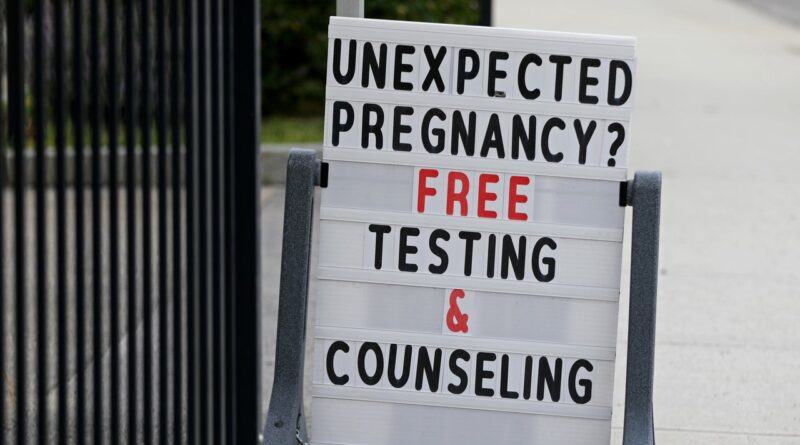Crisis Pregnancy Centers Like Problem Pregnancy Disguise Anti-Abortion Stance With Pro-Choice Messaging
“I think it’s so important that we take the stand of being like ok we need to really hammer it down in Massachusetts and in Worcester,” said Nguyen, adding later: “If we can’t even make a stand like that, it’s upsetting.”
Asked for an update on Nguyen’s ordinance some seven months later, a city spokesman instead referred to the state attorney general’s form for filing consumer complaints.
Boston Globe/Getty Images
Crisis pregnancy centers remain difficult to regulate because they exist in a sort of gray area between medical ethics and freedom of speech protections. In a 2018 paper titled “Why Crisis Pregnancy Centers are legal but unethical,” researchers Amy Bryant, MD, and Jonas Swartz, MD, MPH, investigated how crisis pregnancy centers exploit the position afforded by offering advice without responsibility to adhere to medical ethics and with freedom of speech protection.
“Centers lack regulatory oversight as they are not medical practices and do not charge for services. This exempts them not only from laws and statutes specific to medical clinics but also from Federal Trade Commission or state regulations that apply to commercial enterprises. Their practices are considered to fall under the classification of free speech, which is protected by the First Amendment,” the report reads.
In a phone interview, Dr. Swartz, an assistant professor of obstetrics and gynecology at Duke University School of Medicine, put it plainly.
“The problem with crisis pregnancy centers is that they’re not honest about their goals. They’re not honest about their goals to clients who seek care,” he said.
A practicing OB-GYN, Dr. Swartz said he’s cared for multiple patients recently who had been to crisis pregnancy centers, but weren’t aware that’s what they were.
“They thought that they were at a clinic and they thought that they were being treated by a doctor,” he said. “ And they thought that the conclusions that had been conveyed by that person doing the ultrasound were medical advice… There’s this idea that they can say whatever they want because they’re not providing medical advice.”
Dr. Swartz said he’s heard from patients who’ve been given false gestational periods from crisis pregnancy center staff, incorrect information about whether they were having miscarriages or ectopic pregnancies, and patients who were just generally creeped out by the language used.
Katrina Kimport, PhD, a medical sociologist at the University of California, San Francisco, has studied the experiences patients have had at crisis pregnancy centers and has found that these centers do not often have the intended effect.
“There’s actually not very good evidence that they are effective in the way that they and honestly sometimes their opponents assert,” Dr. Kimport said.
In fact, her research shows little evidence that centers are well-frequented, and of those who do go, relatively few are there for an abortion. She was careful to point out that deceptive as the intent may be, it does not always lead to deception.
“I think this framework that women, especially young women and low income women, are easily deceived and manipulated also undergirds a lot of other types of restrictions on abortion,” Dr. Kimport said. “Like that’s the logic behind something like a mandatory waiting period.”
The more worrying element, Dr. Kimport said, is that for many women, these centers are the only places they can go for free services and maternity needs. “I think the real issue is that what these centers end up doing is filling a social services need and they fill it inadequately,” she said.




